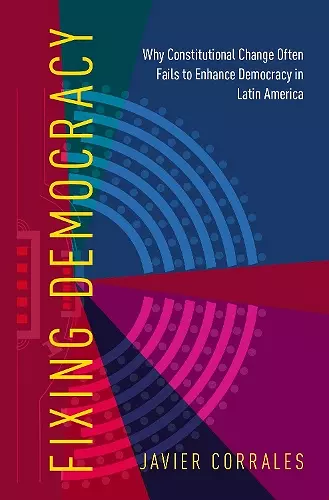Fixing Democracy
Why Constitutional Change Often Fails to Enhance Democracy in Latin America
Format:Paperback
Publisher:Oxford University Press Inc
Published:12th Jul '18
Should be back in stock very soon
This paperback is available in another edition too:
- Hardback£98.00(9780190868895)

The study of institutions, a core concept in comparative politics, has produced many rich and influential theories on the economic and political effects of institutions, yet it has been less successful at theorizing their origins. In Fixing Democracy, Javier Corrales develops a theory of institutional origins that concentrates on constitutions and levels of power within them. He reviews numerous Latin American constituent assemblies and constitutional amendments to explore why some democracies expand rather than restrict presidential powers and why this heightened presidentialism discourages democracy. His signal theoretical contribution is his elaboration on power asymmetries. Corrales determines that conditions of reduced power asymmetry make constituent assemblies more likely to curtail presidential powers, while weaker opposition and heightened power asymmetry is an indicator that presidential powers will expand. The bargain-based theory that he uses focuses on power distribution and provides a more accurate variable in predicting actual constitutional outcomes than other approaches based on functionalism or ideology. While the empirical focus is Latin America, Fixing Democracy contributes a broadly applicable theory to the scholarship both institutions and democracy.
This book is an important contribution to the field of neo-institutionalism in comparative politics. It fills a gap in knowledge of the reasons why presidential powers expand or contract in the context of the broader strength of democracy. * L. M. Barnett, Our Lady of the Lake University, CHOICE *
ISBN: 9780190868901
Dimensions: 231mm x 155mm x 20mm
Weight: 399g
288 pages